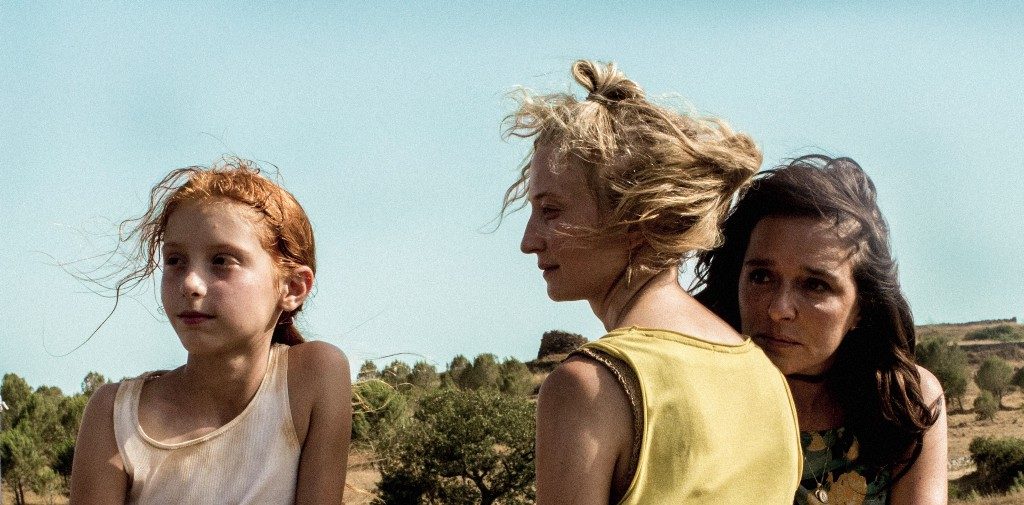Laura Bispuri’s short film “Passing Time” was selected as one of the best international shorts by France’s Académie des César, and her next short, “Biondina,” was awarded Italy’s Nastro d’Argento Award for Most Promising Director. Bispuri’s first feature, “Sworn Virgin,” premiered in Competition at the Berlinale in 2015. It was presented in more than 80 festivals worldwide, and received numerous awards, including the prestigious Nora Ephron Prize at the Tribeca Film Festival
“Daughter of Mine” will premiere at the 2018 Tribeca Film Festival on April 20.
W&H: Describe the film for us in your own words.
LB: This is the story of Vittoria, who — during the summer of her 10th birthday — finds out that she has two mothers. It is the story of a child who is divided between two mothers — the foster mother who brought her up with a lot of love and devotion for ten years, and the biological mother who left her, and now decides to come back to her.
The two women fight for the love of their daughter. It’s a movie where mothers and daughters try to understand the mysterious substance of the cord that links them.
W&H: What drew you to this story?
LB: I understood that I could mix the archaic story — like in the biblical tale of Solomon — with a contemporary story about mothers and daughters. I thought that through this story we could go deep inside the strong bonds of motherhood, and we could accept the truth of this concept that isn’t a perfect sentiment, but is often very complex.
Everyone can have a very instinctive link with the story told in the movie because it is a very emotional one, but it is also possible to have a contemporary reflection about motherhood, and the classic system of parenting that seems to be broken.
W&H: What do you want people to think about when they are leaving the theater?
LB: In this movie, there are three imperfect characters — two mothers, and one daughter. I would like people to appreciate that women can be imperfect, both strong and fragile. Most of all, they can be complex, and in this complexity there is truth, and then beauty.
W&H: What was the biggest challenge in making the film?
LB: The biggest challenge in this movie was to have three points of view. I wanted a single emotional flow through the whole movie, but with continuous passages from one character to the other. It was difficult, at first in the writing process, then during the shooting — because of my way of shooting long takes without cuts — and finally during the editing.
Another big challenge was the subject, because in Italy there is a very strong feeling of protection towards the idea of perfect motherhood, and also towards children who are like angels that you have only to protect.
W&H: How did you get your film funded? Share some insights into how you got the film made.
LB: This is my second movie, and it was co-produced by the same producers of the first one. It is a co-production between Italy, Germany, and Switzerland.
W&H: What does it mean for you to have your film play at Tribeca Film Festival?
LB: It’s a huge source of happiness because I’m coming back to Tribeca where my last movie won a very important prize in 2015, the Nora Ephron Prize. I have very special memories of my last time at Tribeca, of the beautiful screenings, of my days in New York which I love very much, and of the final day — the day of the prize!
W&H: What’s the best and worst advice you’ve received?
LB: The best advice was to follow my dream; the worst advice was to change my dream!
W&H: What advice do you have for other female directors?
LB: I would like to tell them to have courage. Society needs our courage. We must keep going out, telling our story, explaining our unique sensibility, our unique point of view, our dreams, our imagination. If you persist, you can do it.
Never put your head and your heart in the sand like a lot of people would like you to do.
W&H: Name your favorite woman-directed film and why.
LB: There are a lot of women directors that I love — Jane Campion, of course, because she changed my life when I was young. I like Sofia Coppola, Andrea Arnold, Athina Rachel Tsangari, Ursula Mayer, and Alice Rohrwacher a lot.
W&H: Hollywood and the global film industry are in the midst of undergoing a major transformation. Many women — and some men — in the industry are speaking publicly about their experiences being assaulted and harassed. What are your thoughts on the #TimesUp movement and the push for equality in the film business?
LB: It’s a very important time in history for women, and I want to say thank you to American women because it started with them. Now the movement is spreading all around the world, and this is only the beginning. Something very important is changing, and not only in cinema, but in the mindset. This is very important.
Sexual harassment [influences] all systems. The patriarchal system has to end. Women are in a difficult situation always, and everywhere. It is like a holocaust, but not only in a particular place and in particular years, but always, and everywhere in the world. In Italy, which should be a democratic and advanced country, one woman is killed every three days. This isn’t an opinion; it’s reality. So, we have to change the world and this is the moment to go forward.







